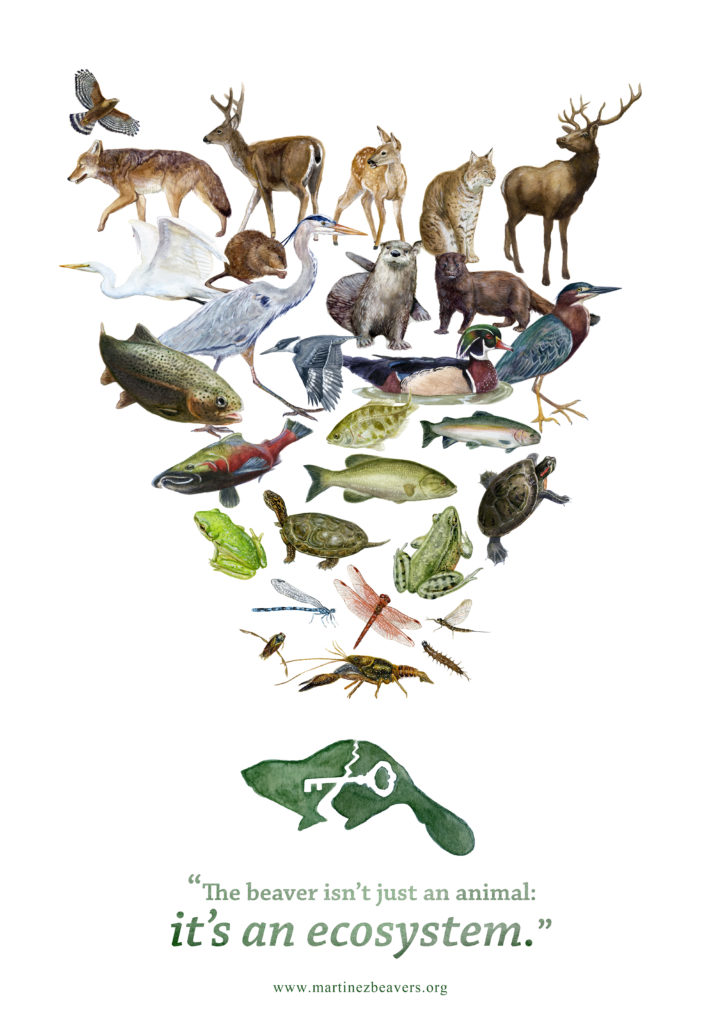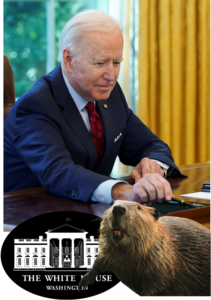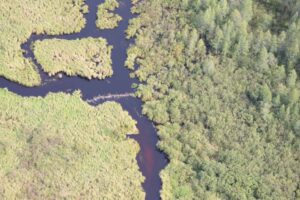We are just in time for the very best op ed about beavers that I have ever seen, and that includes mine in the SF Chronicle! Read every word of this, by Adam Bronstein of the Western Watersheds Project.
Protecting Oregon’s state animal would go far to help Beaver State
 It is a truly sad state of affairs here in the Beaver State: Our salmon stocks are struggling mightily, biodiversity is crashing under the weight of human activities, climate change is accelerating, drought is greatly affecting regional agriculture and wildfires threaten our communities every summer.
It is a truly sad state of affairs here in the Beaver State: Our salmon stocks are struggling mightily, biodiversity is crashing under the weight of human activities, climate change is accelerating, drought is greatly affecting regional agriculture and wildfires threaten our communities every summer.
But there is a nature-based solution that could help. Protecting our state animal could greatly assist human and wildlife communities adapt to the many challenges we face. The wetlands and habitats that beavers create work all sorts of magic for us – free of charge.
The issue is, we keep killing these beneficial animals rather than embracing their effective restoration potential as a recreational activity under the Oregon Department of Fish and Wildlife’s furbearer regulations.
Shazam! Right into the headlights. Tell it to us Adam!
The department has not budged in years past to protect beaver populations by making necessary changes to the furbearer regulations. But we have another chance this year.
In 2024, less than 200 beaver hunters and trappers are depriving 4.2 million citizens of Oregon critical-beaver benefits. Among the millions includes hundreds of thousands of hunters and anglers in the state (I am a hunter and angler myself) who would see greatly expanded fish and game populations due to habitat expansion if beavers were protected.
The mission of the department is to “protect and enhance Oregon’s fish and wildlife and their habitats for use and enjoyment by present and future generations.” I cannot think of a single action that the commission can take to “protect and enhance our fish and wildlife more than to close federal lands to beaver hunting and trapping and let these creatures improve wild habitats. The department is currently abdicating their responsibilities, and in the process, depriving the public of expanded ecosystem services by failing to take action in the past.
If you helped beavers beavers could help YOU do a better job.
Opponents of this change like to claim that just 3% of beavers are killed on public lands, a number so low it is not worthy of concern. But every beaver matters, particularly individuals that colonize new watersheds. The take of just one pair of beavers can impede the recovery across an entire watershed for decades. As it stands today, thousands of Oregon’s rivers and streams are unoccupied by beavers and thousands of rivers and streams are listed as “impaired” under the federal Clean Water Act.
Commission meeting
The commission will discusss the state’s furbearer regulations on June 14. To comment virtually or in-person, email ODFW.Commission@odfw.oregon.gov, noting you want to talk about furbearer regulations and include your name, email and phone number. Submit written comments to the same email, with “Furbearer regulations” in the subject line. For more information, check the Oregon Department of Fish and Wildlife webpage.
Beavers should not be considered as just another species to be managed for recreational purposes by the department. They are the keystone of keystone species and should be protected to assist in species recovery and expansion, and also as a matter of state and national security.
A forthcoming literature review authored by the Oregon Natural Desert Association – set for public release to the Oregon Department of Fish and Wildlife Commission on June 14 – demonstrates how critical beaver-created and modified habitats are to fish and wildlife. In the Oregon Conservation Strategy, 43 species of greatest conservation need – those that need action now to prevent their further decline – are listed as federally threatened or endangered. Forty-four percent of these species could benefit from expanding beaver populations. Additionally, out of 159 species of greatest conservation need identified by the department, up to 111 species, or 70%, could benefit from more beavers on the landscape.
Think of “Beaver Management” Like “Water Management”. An extremely valuable resource that we need to plan for and take into account. You are lucky to have them.
Since 2020, conservation groups and scientists have been submitting information and formal requests to close federally managed public lands to hunting and trapping. Despite our previous unsuccessful attempts, we beaver believers are not going anywhere.
In late May, over 40 conservation groups submitted this letter requesting that commissioners vote to “enact a closure to beaver trapping and hunting on federally managed public lands amending OAR 635-050-0070 with a report to the commission documenting the ecosystem effects, including to water resources and to fish and wildlife populations after 10 years.” A similar request to the commission to close beaver hunting and trapping on federally managed public lands was submitted to the commission by a coalition of Oregon scientists on the grounds of accelerating climate-driven droughts and wildfires and biodiversity losses.
Fish and wildlife staff recommend that the commission approve maintaining the status quo – allow beaver trapping and hunting to continue on federal managed public lands as a recreational activity. And yet staff also state in the information it has prepared for the commission that the “the Furbearer Program is also committed to implementing the department’s Action Plan for Beaver Modified Landscapes which outlines specific goals and actions the department is implementing over 36 months (August 2022 – 2025) to protect and restore beaver habitat and beaver-modified habitat.”
However, you cannot protect and restore beaver habitat and beaver-modified habitat if you continue to allow beavers to be killed as a recreational activity.
We need all hands on deck. As they say, democracy is not a spectator sport.
You can’t save water without the watersavers. You can’t save biodiversity without beavers.
Period.















































